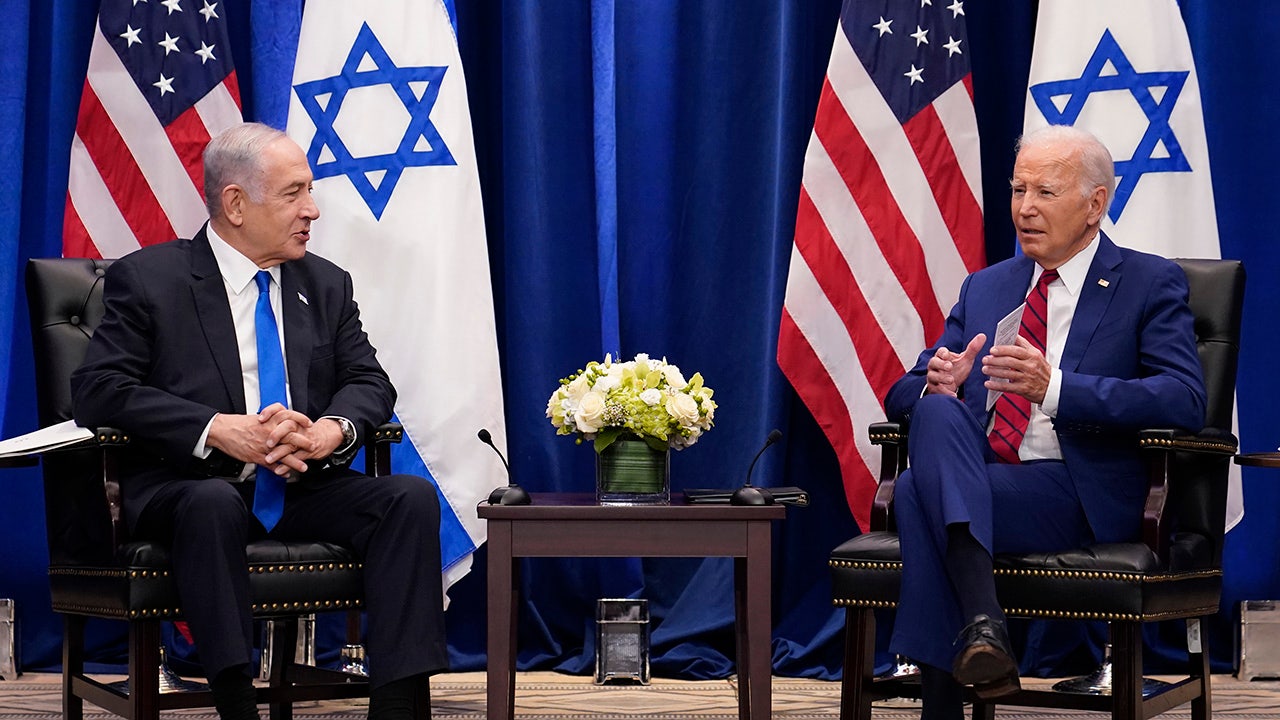At the G7 summit, Biden will push to use Russian assets for Ukraine
For two years, Western allies have debated how to deal with $300 billion in frozen Russian assets. The G7 leaders, who will meet beginning today in Italy, seem on the brink of announcing a compromise.
European leaders feared that seizing the assets would violate international law. So the Biden administration devised a plan to use interest generated by them to back a loan that could be delivered immediately to Ukraine.
The loan could be as large as $50 billion and would be repaid over time with the profits being generated from Russia’s money. Finance ministers from the G7 have been working out the details, and a U.S. spokesman said he anticipated “unanimity” on efforts toward it at the summit.
The leaders are also slated to tackle the question of how to stop China from bolstering Russia by selling it “dual use” microelectronics and other gear to rebuild its military. The Biden administration announced yesterday that it would add sanctions aimed at stopping China from helping the Kremlin in its invasion of Ukraine.
The E.U. places more tariffs on Chinese electric vehicles
The E.U. said yesterday that it would impose additional tariffs of up to 38 percent on electric vehicles imported from China, which leaders called an effort to protect manufacturers from unfair competition. The move comes a month after the U.S. quadrupled its tariffs on Chinese E.V.s to 100 percent.
“By making it more expensive for consumers to buy lower-cost Chinese imports, the tariffs could slow adoption of electric vehicles in Europe — and also slow progress on emissions reduction,” my colleague Jim Tankersley, who writes about U.S. economic policy, told me.
“But they could also help guard against job losses for European automakers,” he added. “That protection could help to maintain political support for green initiatives at a time when Europe’s decarbonization efforts are increasingly drawing backlash from voters who are upset with rapid price increases in recent years.”
Here’s what this means for consumers and what could happen next.
How migration is shaping Western politics
The recent European Parliament elections are the latest sign of immigration’s power to shape the West, David Leonhardt writes. Right-wing parties that had promised to reduce the flow of migration made gains, and center-right parties finished first by adopting a more restrictive stance.
The modern migration boom in the West has had major advantages, but it has also had downsides. More competition can hurt workers; governments strain to provide social services, and some can feel uncomfortable with societal changes. Historically, major immigration spikes have led to political backlashes, like Brexit.
For years, mainstream Western politicians dismissed voters’ concerns about immigration, sending many voters to parties on the extreme right. But recently, the political left and center have started to treat it with moderation and more respect of public opinion.
MORE TOP NEWS
The Middle East
Fans rejoiced as Jin, a member of the K-pop group BTS, became the first band member to complete his mandatory South Korean military service. The label said the group would reunite “around 2025.” But first, Jin plans to hug exactly 1,000 fans in Seoul today.
Lives lived: Françoise Hardy, the pop icon who incarnated a 1960s cool still treasured by the French, died at 80. Listen to a selection of her songs.
CONVERSATION STARTERS
Saudi Arabia sets its sights on boxing
Saudi Arabia has begun a hostile takeover of professional golf and invested billions of dollars in world soccer. Now, it wants to own professional boxing, too.
A Saudi plan that would reshape the economics, structure and future of boxing is in the final stages of approval, according to two people with direct knowledge of the plan. The initial investment is said to be as much as $2 billion. The project, developed with the help of consultancy firms, would effectively create a single worldwide boxing entity featuring about 200 of the top men’s boxers.
The sport, which is run by a tangled web of promoters and sanctioning bodies, desperately needs revamping. It has steadily lost fans to the Ultimate Fighting Championship, whose model is similar to this arrangement.






